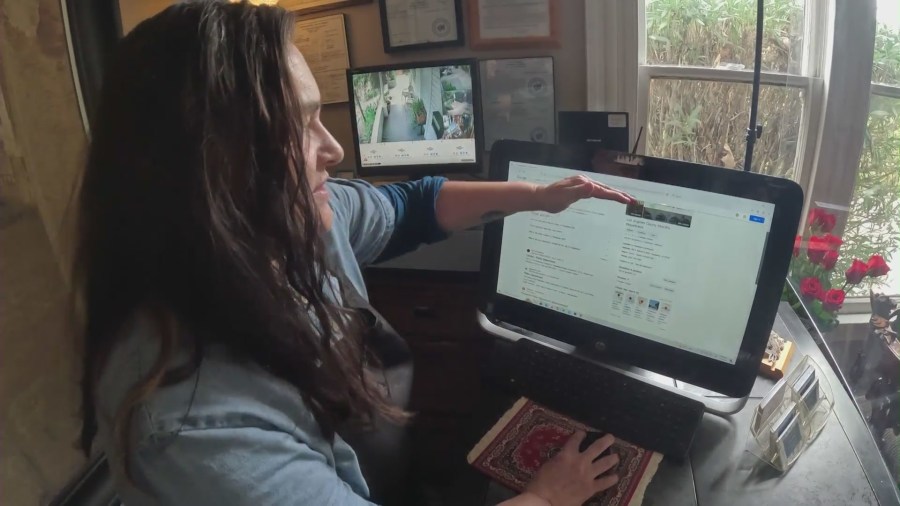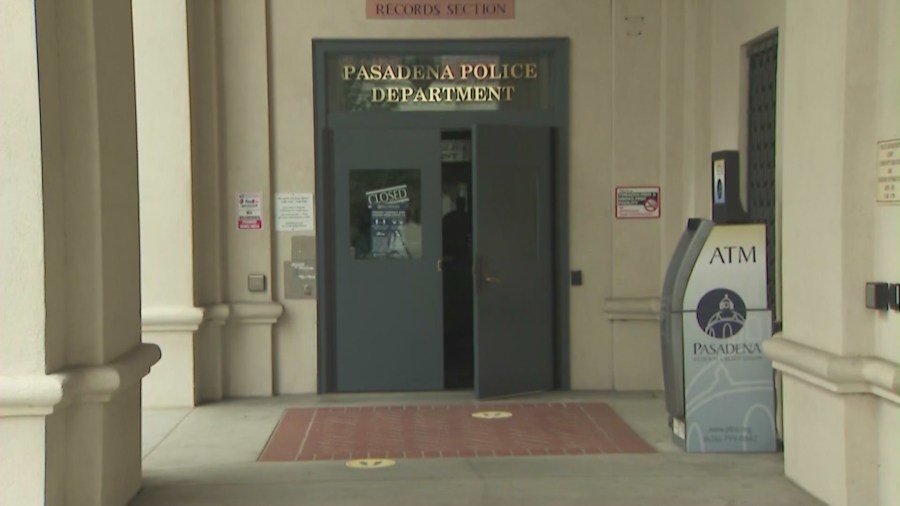A disturbing new trend is targeting Southern Californians as scammers are now masquerading as local law enforcement.
Although these phone scams have been around for some time, modern versions have grown increasingly sophisticated and convincing to unsuspecting victims.
The scam call will often sound authoritative and create a sense of urgency. That’s the type of voicemail Carolyn Jaques received one day while working at her spa in Pasadena.
“The first thing you think is, ‘Someone’s injured or there’s been a car accident,’” Jaques said.
So she immediately called the number back and a man picked up the phone.
“I say, ‘Is everything okay?’” Jaques said. “And he said, “Everything is all right, ma’am, but you have a warrant. I’m calling to let you know we have a warrant for your arrest.’”
Jaques knew that wasn’t possible. She hadn’t committed any crimes. But the caller remained persistent.
“They have a way of talking to you like, ‘I’m in charge,’ and they had it down,” she said. “I thought that they were cops.”
The caller insisted that Jaques would face a hefty fine or possible incarceration for failing to appear in court for jury duty. They claimed someone from her home address had previously signed a certified letter sent from the court.
The caller eventually connected Jaques to another line where a second man picked up, claiming to be a deputy.
“He kept repeating my address at home and he kept telling me, ‘You cannot go home. We have squad cars waiting at your home,’” Jaques recalled.
The caller told Jaques to stay on the line and forbade her to speak to anyone else. He instructed her to immediately head to the Pasadena Courthouse located on East Walnut Street.
Jaques was reluctant to leave her spa as she still had customers who were present. They were staring at Jaques with concern at this point.
“He said, ‘You have to come now. Who are you talking to? Anyone you talk to can be an accessory because at this moment, ma’am, you are a fugitive. Do not talk to any of these people,’” Jaques said.
Still hesitant, Jaques searched the caller’s phone number online and surprisingly, the number matched the L.A. County Sheriff’s Department’s.
“The most bizarre thing was the fact that they had the website. And I’m looking at the website with the number in my phone, while this man is yelling at me and threatening my clients and my family,” Jaques said.
Her husband eventually drove her to the courthouse while the caller insisted she remain on the line.
“He said, ‘Wait a minute, if you step one foot into that station with this warrant, you will be immediately arrested,’” she recalled. “He said, ‘So you must pay your fine first and then you can go and clarify your signature and once you do, you’ll be refunded. Then I said, ‘Well, how much is this fine?’ And he said $1,850 and I said, ‘That is appalling.’”
Exhausted, Jaques hung up the phone and walked into the courthouse, preparing to surrender to authorities. However, that’s when she discovered that none of it was real.
“What the scammer wants to do is put the fear of life in you,” said Lt. Monica Cuellar from the Pasadena Police Department.
Cuellar said scammers are becoming increasingly sophisticated.
“They use a software that will put that particular business number on your phone,” Cuellar explained. “So when you receive it, you’re looking at the phone, and you’re thinking, ‘Oh, it’s from the Pasadena Police Department.’”
By the time Jaques realized what had happened and that she wasn’t a fugitive after all, the scammer had already moved on to someone else. The next victim happened to be Jaques’ friend.
“A friend of mine was scammed $1,200,” Jaques said.
That scam followed a similar script involving legal threats. The callers had instructed her friend to visit the nearest Coinstar Bitcoin Machine to pay the fraudulent fine they were threatening her with.
“Then they said, ‘All right, you can make your payment here. This is your warrant number,’ but obviously it was their Bitcoin account number,” Jaques said.
Jaques is still unclear as to how the scammers accessed her personal information but believes it may have been through voter registration logs.
Generally speaking, voter registration records are public. In California, however, the records are harder to obtain, but there are plenty of online services that may sell your personal data for a small fee.
As these scams continue targeting residents in the Southland, authorities are warning the public to watch out for red flags before cooperating or handing over any cash.
“No law enforcement department is going to call you and demand and pressure you for any sort of payment ever,” Cuellar said. “That will never happen. Do not give any personal information. Do not give any credit card information. Do not give any bank account information. The best thing to do? Hang up.”
Anyone who may have been targeted or victimized in a similar crime is asked to report the incident to their local law enforcement agencies.























